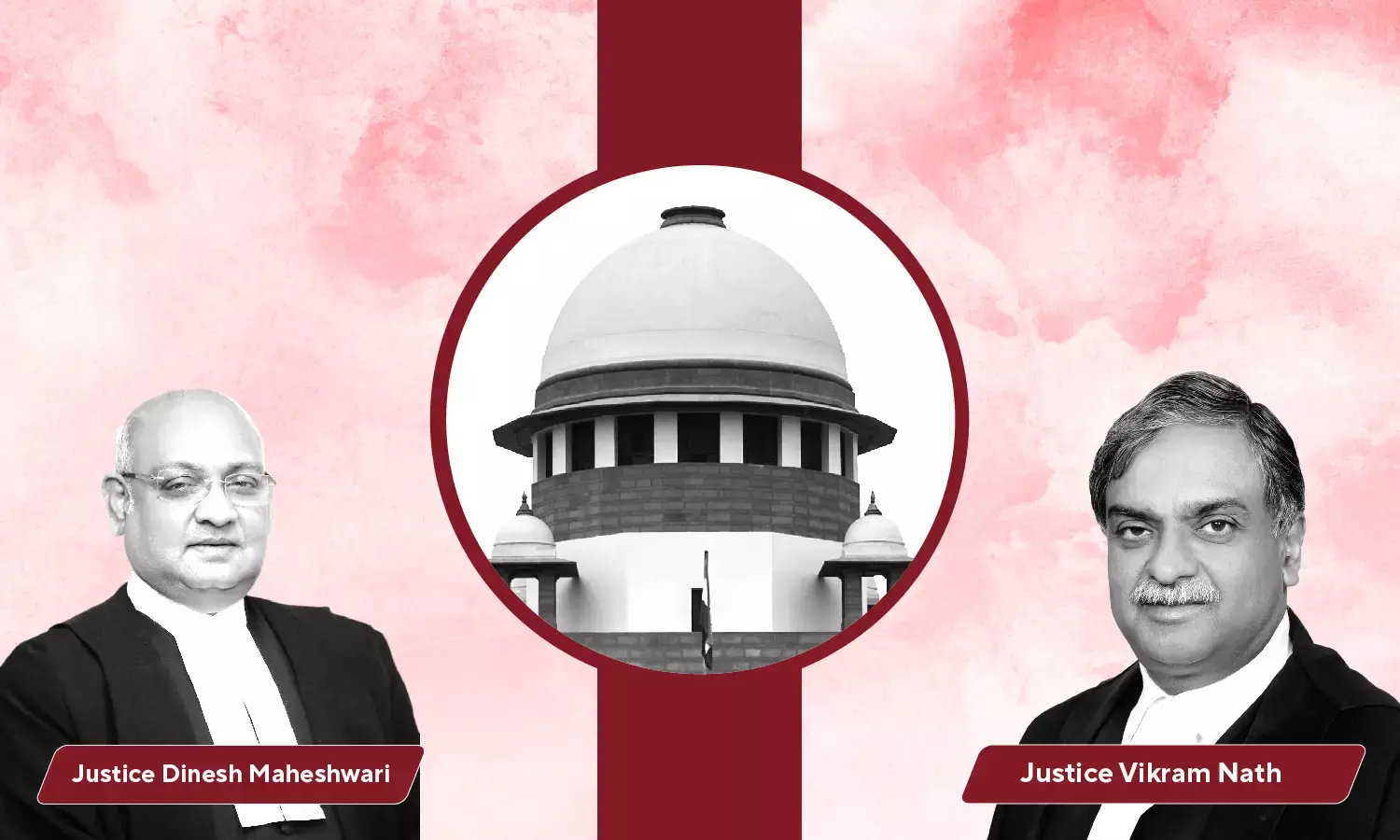Technical Evaluation Or Comparison Of Tender Document Is An Impermissible Area For Judicial Review - Supreme Court

A two-judge Bench of the Supreme Court comprising of Justice Dinesh Maheshwari and Justice Vikram Nath held, that the author of the tender document is taken to be the best person to understand and appreciate its requirements; and if its interpretation is manifestly in consonance with the language of the tender document or subserving the purchase of the tender, the Court would prefer to keep restraint.
Further to that, the technical evaluation or comparison by the Court is impermissible; and even if the interpretation given to the tender document by the person inviting offers is not as such acceptable to the Constitutional Court, that, by itself, would not be a reason for interfering with the interpretation given.
The High Court had allowed the writ filed by Respondent no. 1 and had disapproved the technical disqualification and consequential rejection of the technical bid of the Writ Petitioner in respect of a tender floated by the Navodaya Vidyalaya Samiti. The bidder whose offer was accepted by NVS after technically disqualifying the Writ Petitioner was Agmatel India Pvt. Ltd.
The Court noted the following question for its consideration:
Whether the High Court has been justified in interfering with the view taken by the tender inviting authority, i.e., NVS, in rejection of the technical bid of writ petitioner for want of fulfillment of 'Past Performance' criterion about the supply of 'same or similar Category Products' of 60% of bid quantity in at least one of the last three financial years.
The Court noted that the scope of judicial review in contractual matters and particularly in relation to the process of interpretation of tender document was the subject matter in various authorities.
The Court noted that it was clearly of the view that the impugned order cannot be sustained.
The Court noted that the decision relied upon by the High Court i.e. Reliance Energy & Anr. v. Maharasthra State Road Development Corporation Ltd & Ors.: (2007) 8 SCC 1 had no direct application to the facts of the present case and even otherwise it has not been the finding of the High Court that the term stated by the NVS was lacking in certainty.
The Court made the following crucial observations:
"Putting it differently, neither the excessive analysis, as entered into by the High Court, was required in this case nor we would be evaluating all the specifications of these two products, namely, "Smart Phones" and "Tablets". Suffice it to notice for the present purpose that even if both are electronic devices and even if several of their utility features are the same or similar, their categorisation under different headings is also a fact not unknown to the parties, as would appear from the categorisation on the Government online portal itself. Beyond this aspect, in our view, no adjudicatory process is called for and the interpretation as put by the tender inviting authority-NVS does not deserve interference. Similarly, if in some of the notice inviting tenders, both smart phones and tablets were stated, or in some of the tenders, specific product tablet alone was stated, that would also not be decisive because that would, obviously, depend on the purpose for which the procurement was being made; and the procuring party, i.e., the tender inviting authority, ought to be extended the latitude to decide on its requirements."
The Court noted that viewed from any angle, interference by the High Court in this matter does not appear to be justified particularly when no case of mala fide or bias is alleged.
The Court noted that every decision of administrative authority that may not appear plausible to the Court cannot for that reason alone be called arbitrary or whimsical.
The Court noted that the contra proferentem rule cannot be applied to lay down that in case of any ambiguity in a tender document, it has to be construed in favor of a particular person who projects a particular viewpoint.
The Court noted that "The only requirement of law, for such process of decision-making by the tender inviting authority, is that it should not be suffering from illegality, irrationality, mala fide, perversity, or procedural impropriety. No such case being made out, the decision of the tender inviting authority (NVS) in the present case was not required to be interfered with on the reasoning that according to the writ Court, the product "Smart Phone" ought to be taken as being of similar category as the product "Tablet"."
The Court noted that the terms of the tender had been clear and they were ascertainable with specificity available on the very portal on which NIT was issued. The Court noted that it had not been a case of post facto interpretations by NVS.
The Court reiterated that no case of mala fide has been made out rather all other tenderers had clearly understood the meaning and requirement of the past performance criterion.
The Court held that it was clearly of the view that the writ action filed was required to be dismissed and hence the order of the High Court was to be set aside. Hence, appeals were allowed, and the writ of the writ petitioner was dismissed.
Click here to read/download the Judgment

